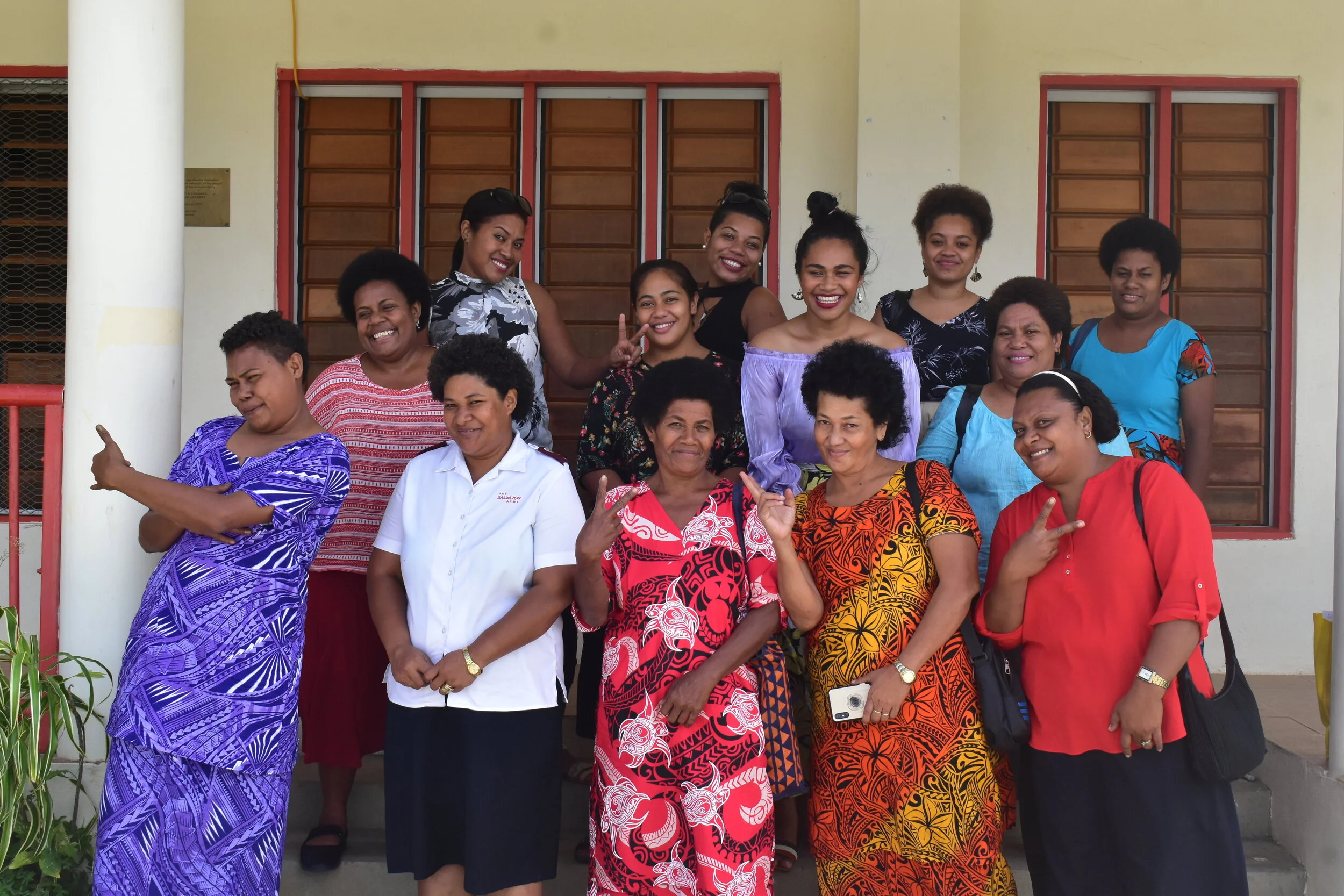“Transport is limited,” said Vakatoto Wawa of the Salvation Army Women’s Group in Savusavu.
“Before, one village one bus but during this COVID-19, like one bus goes to three villages so social distancing was an issue there,” she said.
During femLINK’s district convenings in June, members of the Rural Women Leaders Community Media Network (RWLCMN) shared the difficulties they faced implementing guidelines from the Ministry of Health.
She also shared that during this time, bus schedules had changed due to curfew hours:
“Like before COVID-19, the five o’clock bus is there (last bus) up to the village but during this COVID only two o’clock bus goes so people find it hard to go home.”
Other issues include maintain hygiene practices when leaving the house:
“[There are] no gloves, masks, hand sanitizers in market, overcrowding in market,” shared Adi Mere Vulavou of the Nadamole Women’s Group.
Vulavou says that with villages maintaining their own security protocols to respond to COVID-19, it’s also limited the opportunities for women to have their voices heard.
“No village meeting so women can’t tell the other villagers that they need more space to raise their voices,” she said.
She said in order for communities to be able to respond better to COVID-19, more consultations should have been done in rural communities.
“Ministry of Health should visit the villages to boost awareness to explain COVID-19 and also they should do consultation to find out our concerns on healthy living and security too in the village.”
Mereani Mataika, a member of the Savusavu Youth Group says that for young people, adapting to these new changes proved difficult at first.
“This is the age group where we discover things and being a youth, most of us we call ourselves ‘social butterflies’ [but now] we are restricted from going out and all but adapting to this pandemic, it will take some time but we will try.”
“Everyone has a role to play in this time, not only the youths,” she added.

